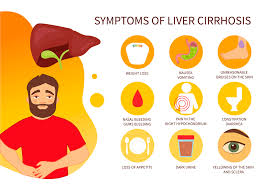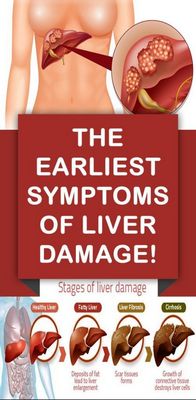
Liver disease is characterized by a series of typical symptoms, most of which are commonly associated with other gastrointestinal problems. This makes accurately diagnosing liver disease difficult at first.
The liver acts as the first defense against internal and external infections and is the largest organ in the body, but because of its size it is the most often affected when symptoms of hepatitis, cancer, gallbladder problems and hepatitis are present. Because the liver has so many functions, it is very common to have symptoms that may indicate other health problems. If you suspect you may have a liver problem, do some self-examination and see if there are any signs of hepatitis, gallbladder trouble or liver cancer.
Liver disease symptoms include abdominal pain or discomfort, vomiting, jaundice, loss of appetite, nausea, and a general feeling of weakness and lethargy. A liver biopsy will help to rule out cancer and determine whether your symptoms are caused by infection or by the breakdown of your liver tissue. Symptoms of hepatitis include jaundice, yellow skin and mucus in the mouth or nose. Signs of gallbladder problems include abdominal pain, increased heart rate, fever, vomiting, and dark urine.
Hepatitis may be treated through antibiotics, but treatment for more severe cases of hepatitis may require surgery and dialysis. If the symptoms are unexplained and are associated with a family history of liver trouble, it is important to have your doctor look at your family medical history and see if there is a possibility that you are a carrier of the hepatitis B virus.
There are some diseases that cannot be cured, and there is no cure for liver failure. Liver failure is a progressive condition that gradually erodes the organ until the organ fails to function at all. Symptoms of liver failure include extreme weakness, fatigue, chronic fever, jaundice, nausea, abdominal pain and vomiting. Signs of gallbladder problems include a burning sensation in the abdomen, frequent urination, anemia, painful coughing, and a chalky taste in the mouth or in the urine.
Some forms of liver cancer can be fatal and it is therefore important that you visit your doctor for tests. Symptoms of liver cancer include a lump in the neck, fever, chills, and abdominal pain, dark urine, weight loss, and an enlarged spleen.
A liver biopsy may help detect the early stages of the disease, but unless the condition is detected at an advanced stage it may never be cured. When doctors discover a disease in its early stages, they are usually able to treat the disease effectively.
Symptoms of liver disease should not be confused with simple stomach or back pain. These can often be symptoms of gastrointestinal infections or kidney problems.
To help prevent or detect the disease, you should keep a track of your diet and make changes if needed as they occur. Eating a healthy diet will lower your cholesterol and triglyceride levels and improve your overall health. You should avoid fatty and fried foods, as they increase your cholesterol and triglyceride levels.
Other ways to prevent the occurrence of liver disease is to reduce your stress. Physical activity and aerobic exercises help reduce the chance of developing liver disease and improve your general health.
As mentioned earlier, there is no cure for the disease, but there are ways to prevent the disease. Some conditions are treatable, although surgery is rarely necessary, and most conditions can be cured by making some dietary changes.
Liver disease is not something to take lightly and should not be taken lightly. Your doctor can help you identify and treat the problem with symptoms of liver disease and other forms of symptoms of liver disease.

Leave a Reply